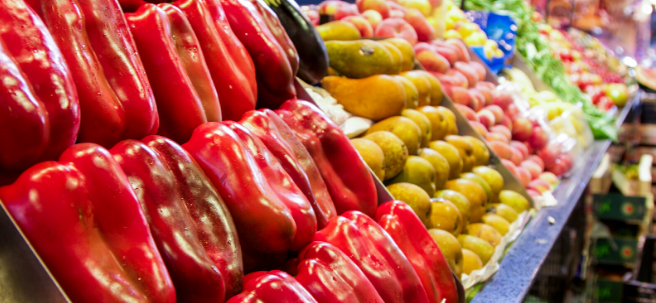
08 de July de 2020
Innovación
07/08/2020 • The European Smartchain project promotes the development of short food supply chains to promote local products. • Two Spanish projects are among the innovation examples of this platform.
The European Smartchain platform—part of the European Union's Horizon 2020 research and innovation program—promotes short food supply chains to improve competitiveness and foster rural development . To this end, it involves the participation of multiple stakeholders, including entrepreneurs and professionals, representatives of organizations, and researchers. The project uses an interactive model in which all stakeholders work together to maximize knowledge transfer .
A short food supply chain is a supply chain involving a limited number of economic operators, committed to cooperation, local economic development, and close geographical and social relationships between food producers, processors, and consumers. Indeed, promoting direct sales by individuals and/or groups within a local community is one of the focuses of the new Common Agricultural Policy (CAP) to improve competitiveness in Europe.
Spanish projects
The Smartchain platform evaluates 18 cases of short food supply chains in rural, peri-urban, and urban communities. The platform's premise is to address the problems that hinder the transition of short food supply chains from production to greater market participation by building an international community of short food supply chains. Connecting the 18 selected case studies is the starting point for this.
The Spanish Smartchain team—led by Raquel Rodríguez and Eduardo Puértolas—has among its objectives:
- Identify national stakeholders in the food supply chain.
- Develop synergies with operational groups and research groups.
- Facilitate communication between professionals in short food supply chains.
- In addition to stimulating technological innovation and the dissemination of project results.
In Raquel Rodríguez's statement to the National Rural Network, "a short food chain means having few or no intermediaries when it comes to selling, as well as local, high-quality products. These factors, in the current post-COVID-19 scenario, are undoubtedly increasing."
The two case studies in Spain covered by the national Smartchain section are:
The Araba Truffle Cooperative was founded in late 2006 as a result of the Action Plan for Truffle Farming in the Basque Country. Currently, the cooperative has a total of 57 members.
The truffle is harvested by the producer, then sorted, cleaned, and distributed to the customer. Some of this truffle is frozen, so it can be distributed to the customer if needed throughout the year.
This initiative is dedicated to the cultivation and production of 100% organic salads and vegetables sourced exclusively from the local agricultural sector. Its unique value lies in the inclusion of people with disabilities through the Lantegi Batuak Foundation , a non-profit organization that creates job opportunities tailored to this group of people with disabilities.









